Cuba was one of the more difficult places I’ve traveled to.
There, I said it.
Not a lot of people openly say this about their trip to the island. They post the colorful photos of the couple blocks in Havana that are photogenic, and don’t say anything more about it aside from, “It was an amazing trip.”
But when pressed, those same people say things like “Cuba broke my heart,” “It was a hard trip” and “I still haven’t processed my visit.”
Because, while Cuba is amazing (and it really is), it is also challenging, heartbreaking and tries your patience in more ways than you can count.
And I want to talk about that side of it – about the parts no one posts on social media (myself included) and about the things that no one really wants to say.
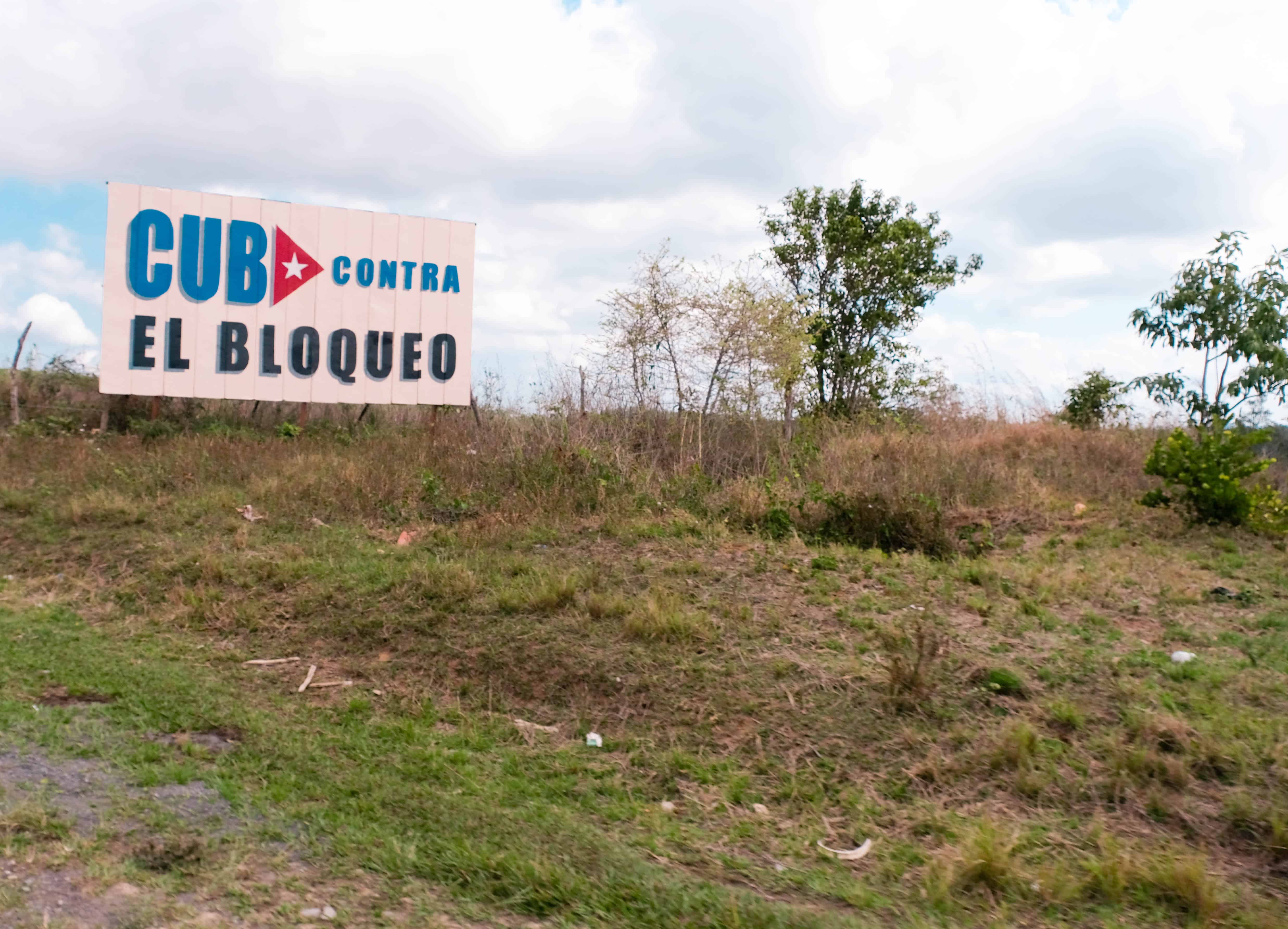
I’ll start this out with a little anecdote…
One night during our trip, we were waiting in the living room of our Airbnb in Vedado for a cab to take us into Havana. If you aren’t familiar with the geography of Cuba, Vedado is a more suburban neighborhood located about 15 mins. from Havana that is mainly made up of old mansions. It’s a great place to stay during your visit because you aren’t right in the middle of the city and therefore, the casa particulares are bigger.
We had reservations that night at La Guarida – one of Havana’s nicest restaurants that has served the likes of Beyonce and Barack Obama. It’s one of the only restaurants in Cuba that actually honors your reservation and even has a 15-minute grace period before giving away your spot.
We were panicking a little because, in true relaxed Cuban style, our host had called for a cab over an hour ago and still… nothing.
Finally giving up, our host told us that her neighbor had kindly offered to drive us into the city himself.
We were about 5 minutes away from La Guarida when we were pulled over by the Cuban police. We waited for 15 minutes while the neighbor spoke to the officers behind the car.
We had no idea what was going on, but the longer we sat waiting, the more nervous we got.
Finally, the neighbor got back in and said, “Los pagué. No quieren que estemos juntos.”
“I paid them off. They don’t want us to be together.”
When pressed, he continued to explain that it’s against the law for him to drive around with tourists in his car. In other words, the police had seen a local Cuban in a car not marked “TAXI” driving around a group of white people.
Aside from the overt corruption we had just witnessed (that is similarly present in many places), I was most disturbed and surprised to learn that the government imposes restrictions on how the Cuban people can interact with tourists.
And just like that, combined with the previous day’s event of touring the inside of an average Cuban’s home in Havana, I began to struggle with the way Cuba is presented on social media.
Moments like this are impossible to convey in a photo of colorful buildings. The daily struggles of the Cuban people and the tight grip that the Cuban government has on its people can’t be fully discussed in the caption of a smiling girl laughing out the window of an antique car.
They are impossible to convey as a social media influencer whose brand’s success hinges on photos of beautiful landscapes and luxurious hotels.
And while many, many “Instagram-famous” destinations have their slew of problems (Bali, Turkey, Greece, etc.), I feel particularly moved to write about Cuba because it is an up-and-coming tourism destination that I think needs to be handled with care.
I struggle with the question of how I can discuss the un-social media worthy parts of Cuba while also simultaneously encouraging people to visit.
Talking with others who have also visited the country, it seems that most are asking themselves the same thing.
It’s been almost two months since my trip to the island and I still haven’t formulated a good answer, but for now, I’ve boiled my message down to this:
Go to Cuba, but go responsibly.
I cannot begin to explain how much I enjoyed my trip. Cuba is a vastly interesting country, full of vibrant culture, kind & generous people and beautiful landscapes.
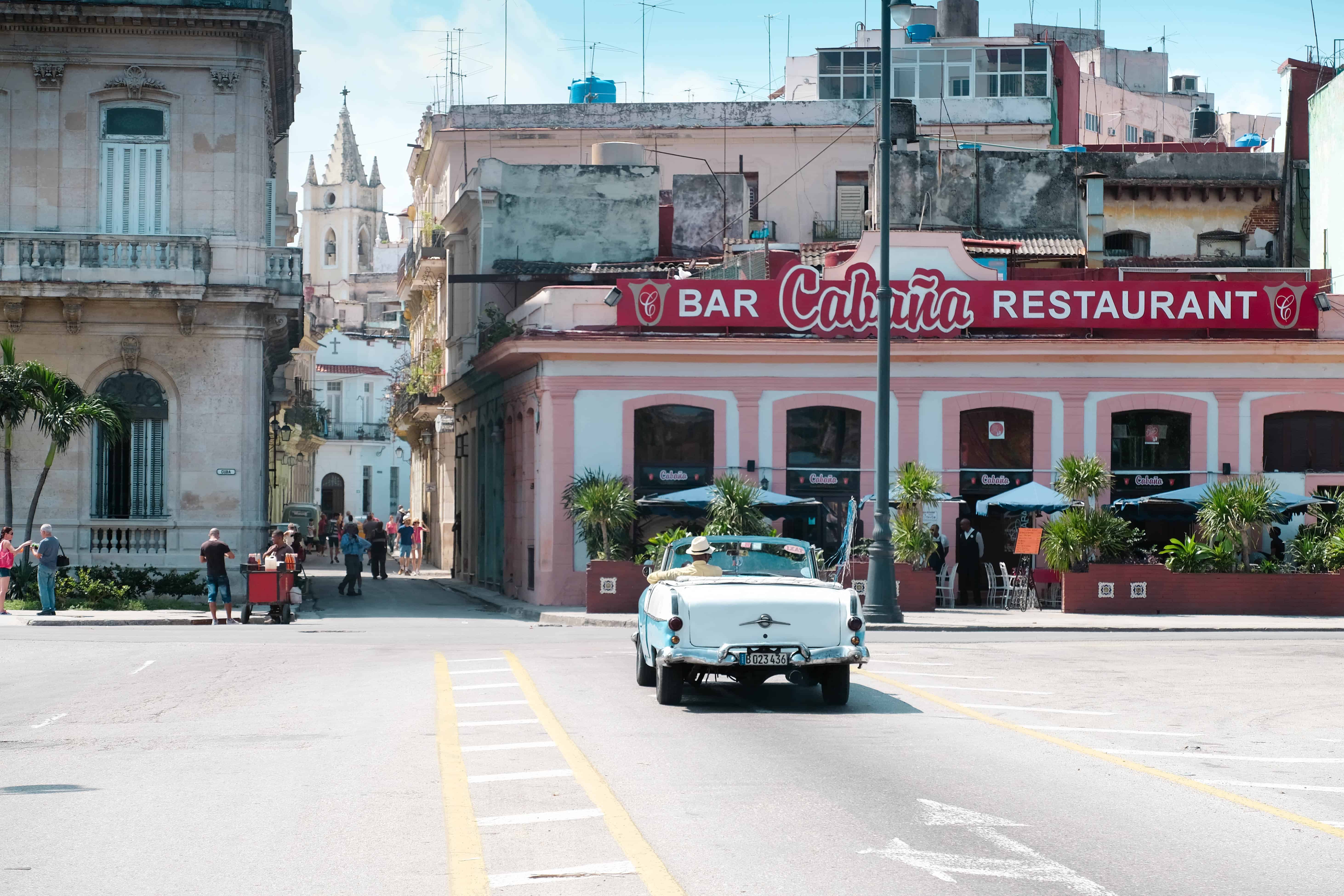
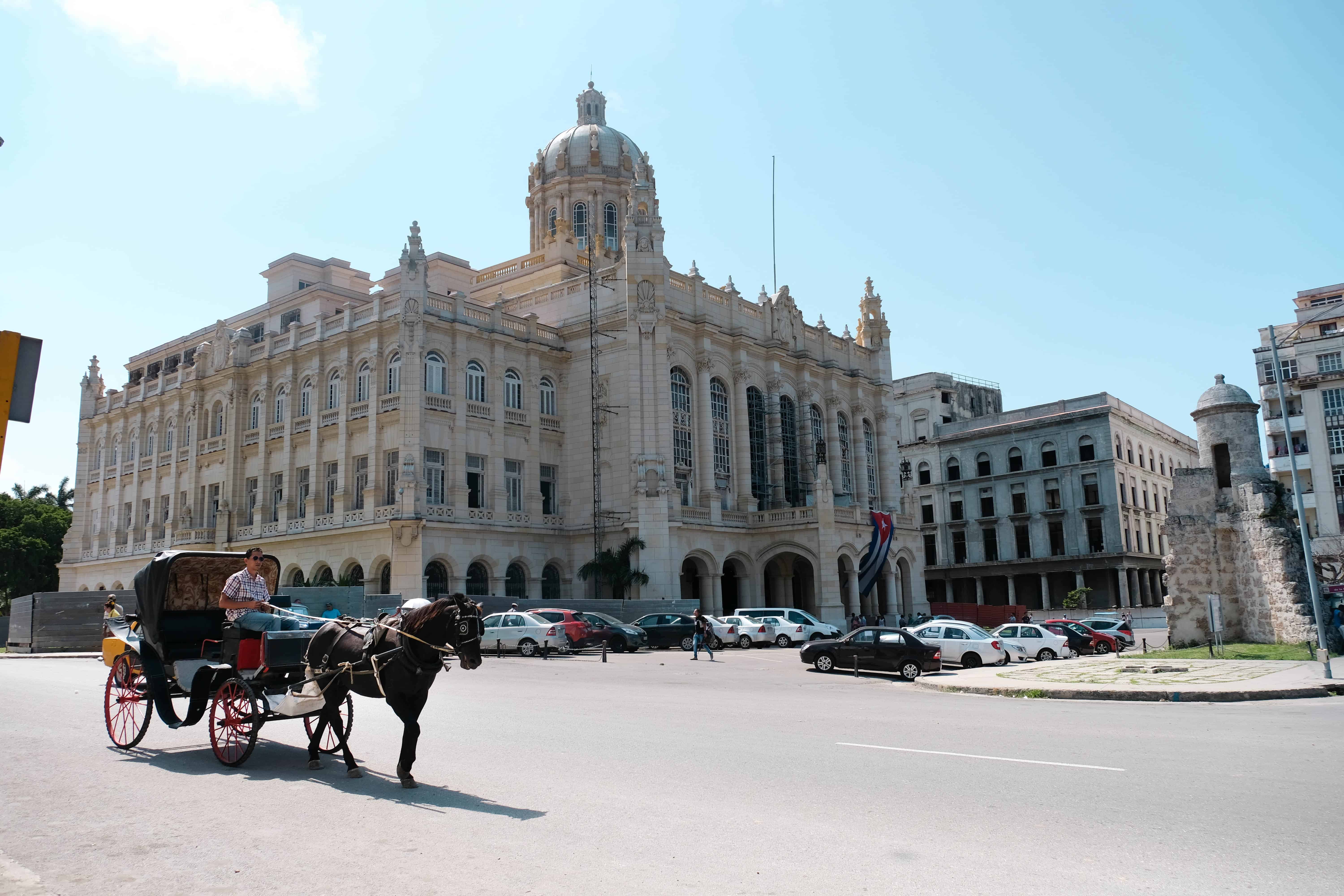
But before you go, know Cuba’s history (I love this video by Vox!) and know what daily life is like for its people.
Understand that while Havana’s ability to transport visitors “back in time” is charming for you to experience for five days as a visitor (and does make for some wonderful photos), it means some very dismal things for the people actually living there.
Most importantly, educate yourself on how you can benefit the Cuban people while visiting the country.
Before I go into those tips, here are some facts about the reality of life in Cuba, some of which I learned during my trip from locals:
- Cubans have un Libreto de Abastecimiento (meaning “Supplies Booklet” or ration cards) which allow them to get a certain number of products per month. These monthly rations do not include items we take for granted like soap, toilet paper and tampons. The rations have also gone down significantly over time and are oftentimes not enough to feed a family.
- You may have heard about Cuba’s remarkably low crime rate. It’s true – violent crime against tourists on the island is very rare and the country is very safe. This is in part due to the fact that the Cuban people are incredibly good natured, hospitable and friendly, but it is also because the punishment for committing a crime against a tourist outweighs the punishment for most other crimes. Of course, this is a great thing for tourism, but it does also hint at a twisted system that cares more about income from the tourism industry than its own people.
- Whether they are a doctor, nurse, lawyer or engineer, the average monthly salary for a Cuban is $20. This is set by the government as a standard.
- The exception to this rule are cab drivers. Cab drivers in Cuba make significantly more money than trained doctors or engineers because they have private licenses provided to them by the government. Their salaries are not set by the state, meaning that they can charge tourists high prices (like the $25 to go from the airport to central Havana). If you’ll notice, that’s more than the average monthly salary. This means that highly skilled and trained Cuban people are forced to do remedial jobs like drive cabs and wait tables.
- The farmers in Viñales, the beautiful area of Cuba most known for its sprawling tobacco fields and mogotes, are forced to give 90% of the tobacco they grow to the government. The government then adds chemicals to the tobacco, seals the cigars with a harmful glue and sells them at an insane mark-up in government-run shops.
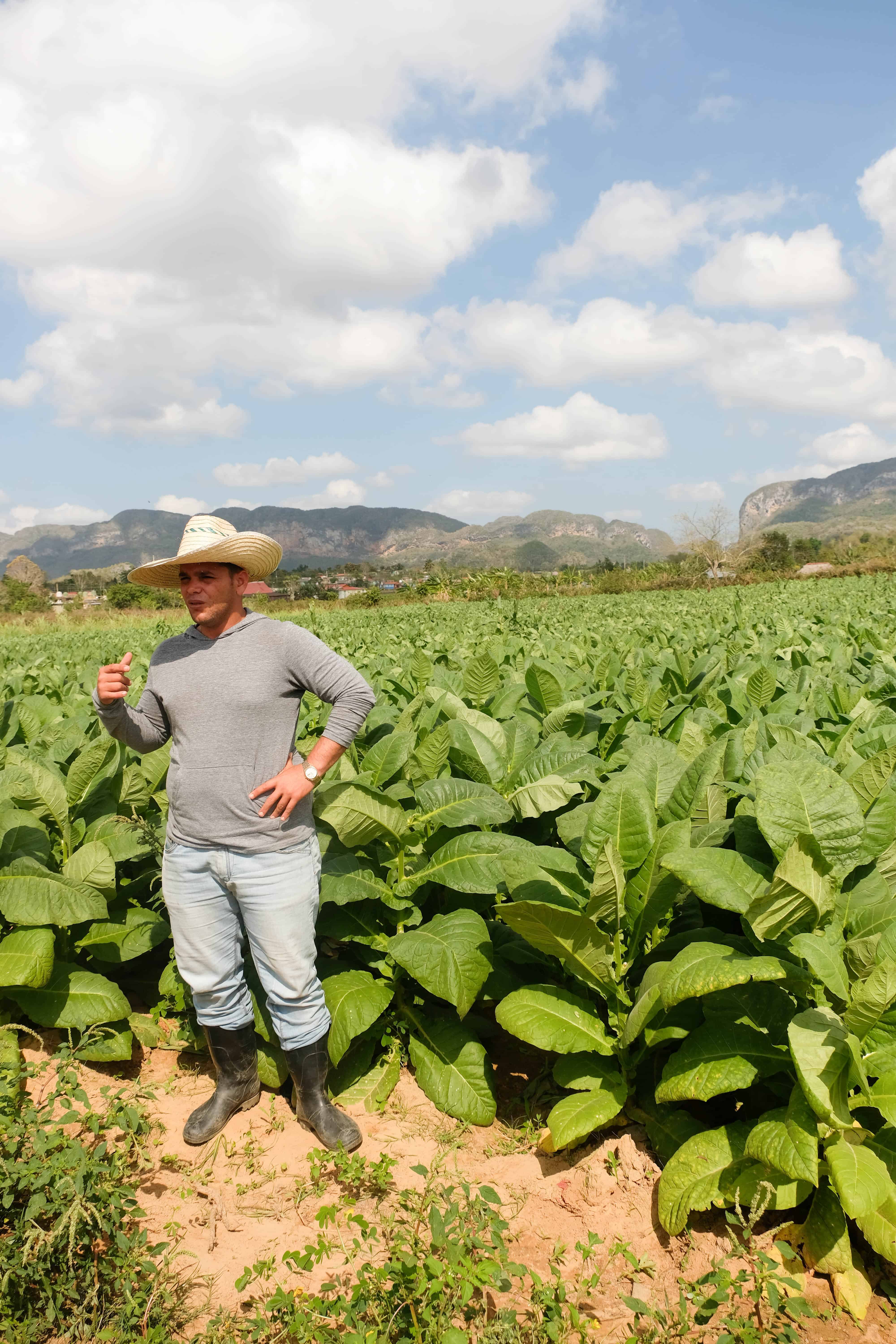
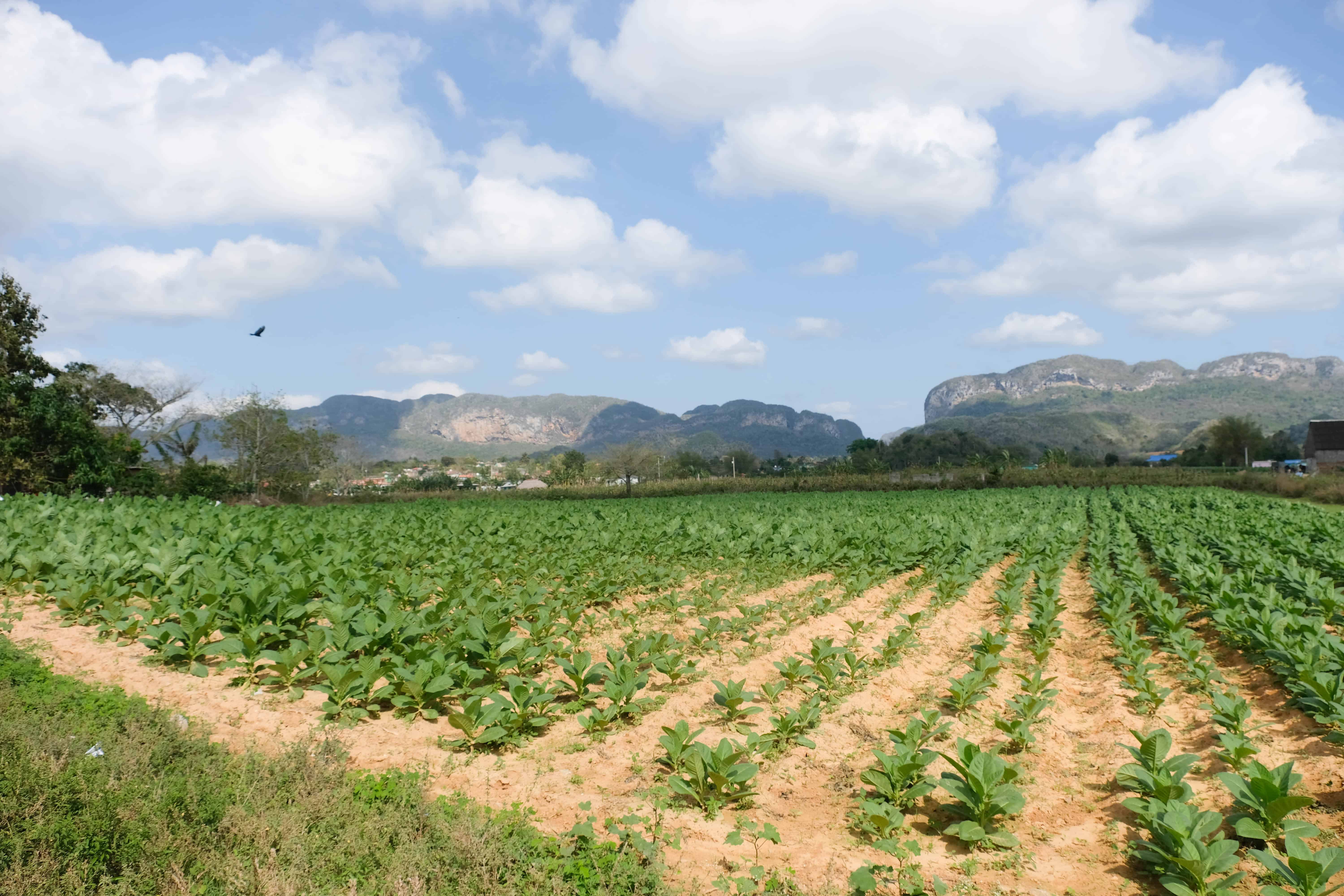
- The infrastructure is falling apart. If you fail to see the direness of the situation in Habana Vieja (the more colorful, tourist-popular area), head into Centro Havana and to the outskirts of the city to understand how truly devastating Cuba’s infrastructure is. You’ll notice broken windows, collapsed roofs, split walls. You will jump over huge holes in the concrete ground while trying to stroll the sidewalks. There are instances of buildings crumbling to the ground simply because it’s nearly impossible for Cubans to get their hands on construction materials to improve the situation.
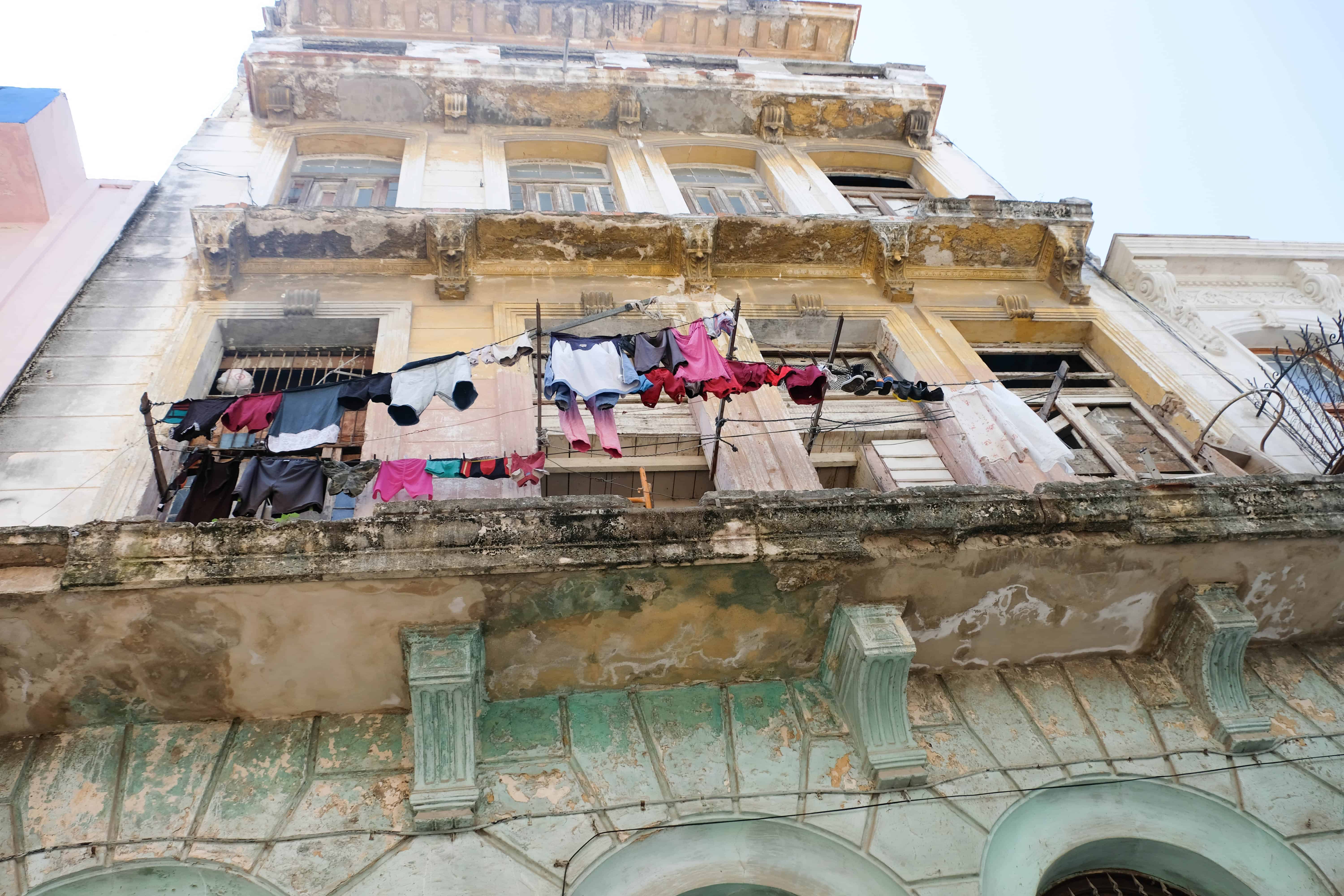
- Food is scarce and you will see this very clearly when you walk into any supermarket or store in Cuba. “Having fish for dinner” is not as simple as going to the market and choosing from a selection of seafood. In Cuba, “having fish for dinner” is something that needs to be planned weeks in advance and can only be done by buying through Cuba’s black market.
- As I mentioned above, not only is it illegal for a local to drive tourists in a not private car, it’s also illegal for a foreigner to sleep in the home of a local without authorization. It’s also illegal for a local to socialize with tourists in public for an extended period of time. I don’t know why this is.
Having said all of this, I do realize that some people might be turned off by the idea of visiting, but I don’t want this post to have that impact at all.
Cuba is worth visiting – it is worth your money, your attention and your love. I only want to draw attention to the way Cubans truly live because for some reason, nobody is talking about it.
I think that the more we talk about it, the more complete of an understanding we will have for the situation and the more knowledgeably we can travel there.
When you do book your trip to Cuba (which you should), here is how to travel to the country responsibly:
- Bring products to the people. As I mentioned above, ration cards prevent Cubans from having access to very basic things. Bring shampoo, conditioner, body soap, detergent, tampons, pads, etc. with you. Give them to your casa particular host, your waitress, your tour guide, whoever. These items are very expensive and difficult to come by for local Cubans because the government has deemed them “unnecessary.” They will be accepted with gratitude.
(Go here for a full list of things you should bring).
- Bring business to private enterprises. In the 90’s, the Cuban government began giving out private licenses in order to fuel a very small private sector. These licenses are primarily given to restaurants and homes. The food you will find at paladares particulares (privately-run restaurants) is significantly better than the government-run restaurants because it needs to be for these restaurants to stay in business. And the experience you will have staying at a casa particular (private homestay) will be exceptionally better than that of hotels – you will have a far more authentic experience and experience firsthand the kindness of the Cuban people. These private businesses are the future of Cuba and you should do everything you can to support & nourish them during your visit.

- Buy cigars in Viñales. The cigars in Viñales are better and far more organic than those in the government-run stores in Havana. Save your money for Viñales, where the money you spend on buying cigars will go directly to the people who actually grow the tobacco.
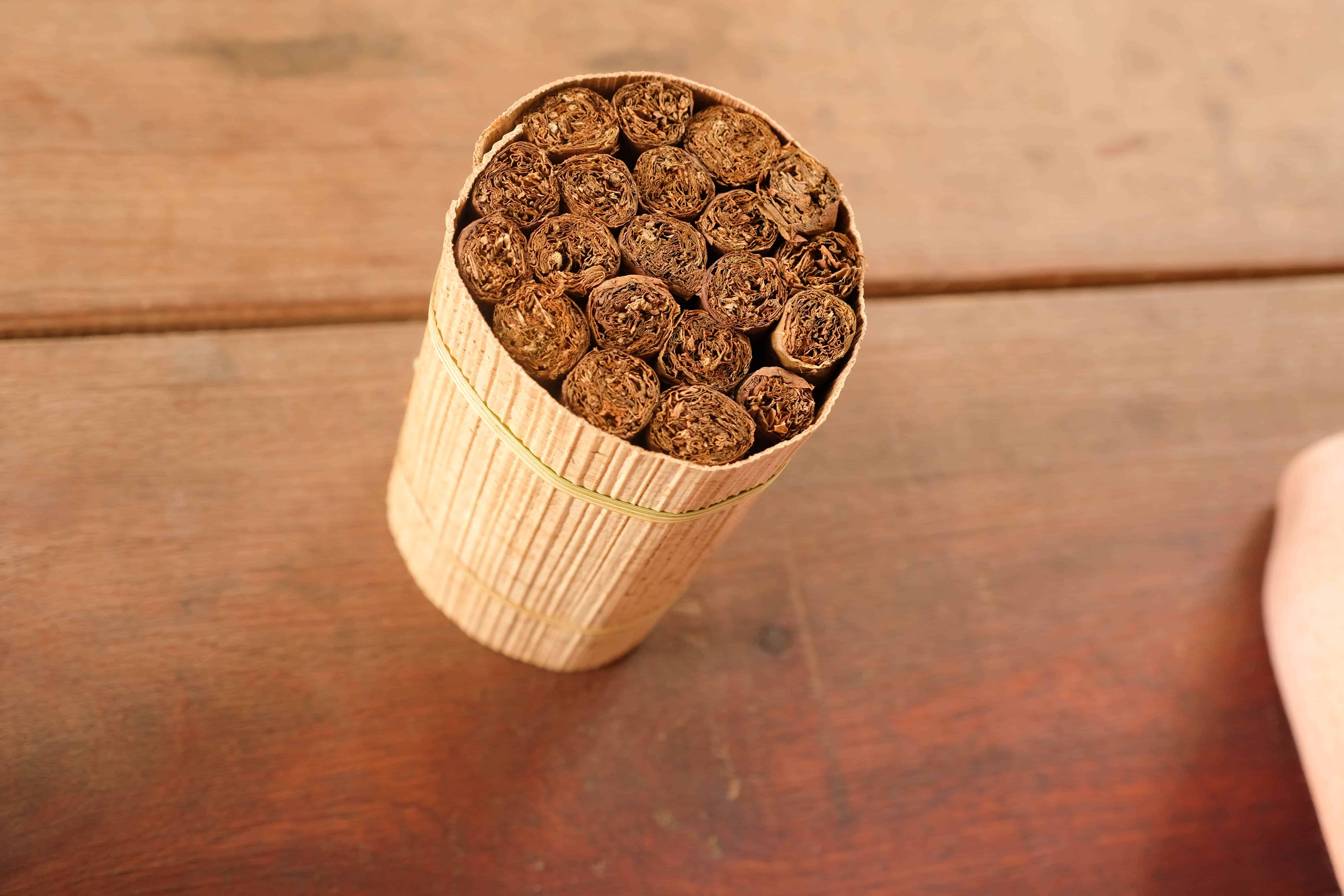
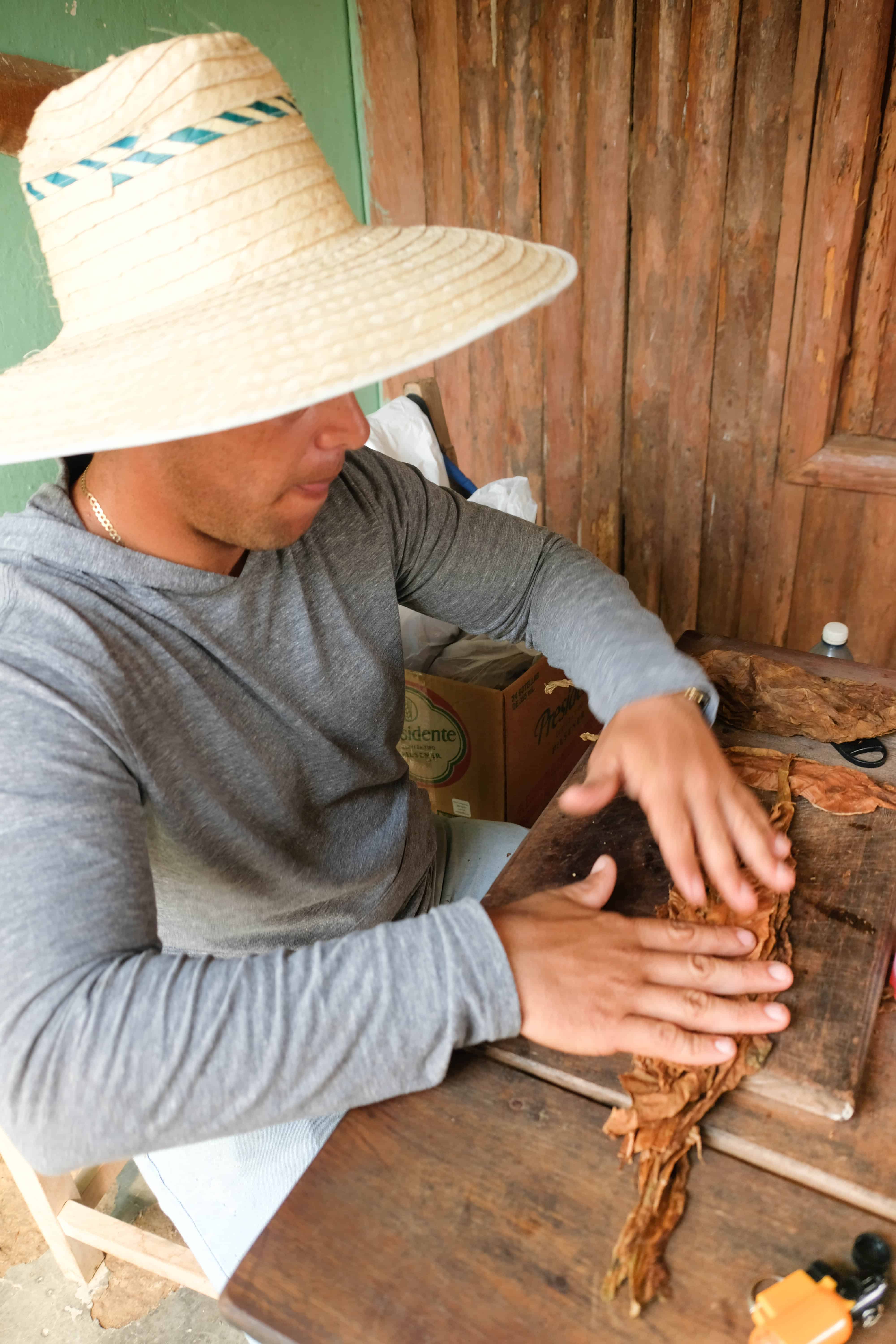
- TIP!
- Get involved with a volunteer program, like First Hand Aid.
- Don’t be an asshole. Don’t complain incessantly about your restaurant order taking longer than 30 minutes (Cuba is relaxed and your meals, in general, will take much longer that this). Don’t be that person who doesn’t know a word of Spanish and refuses to buy a Spanish phrasebook. Or that claims they know how to solve all of Cuba’s problems after a week-long visit. And for the love of all that is good, don’t be the ultimate kind of asshole that participates in sex tourism and prostitution.
- Finally, rave about Cuba! There is a huge knowledge gap about Cuba, so talk about your trip to everyone. Tell everyone you know about the amazing memories you made during your visit and encourage them to go and make some of their own.
Cuba’s problems are incredibly complicated. The lift on the travel ban that prevented Americans from entering Cuba does not signify a complete and total victory. It only signifies a small step towards (what I hope will be) a bright future for Cuba. Through some combination of internal reformation, elimination of “El Bloqueo,” and increased tourism, I pray that we see this future unfold in our lifetime.
But in the meantime, visit Cuba responsibly and knowledgeably. Soak up every bit of beauty and culture the country has to offer, and get to know the amazing, resourceful and resilient people that live there. They make Cuba the beautiful place that it is.
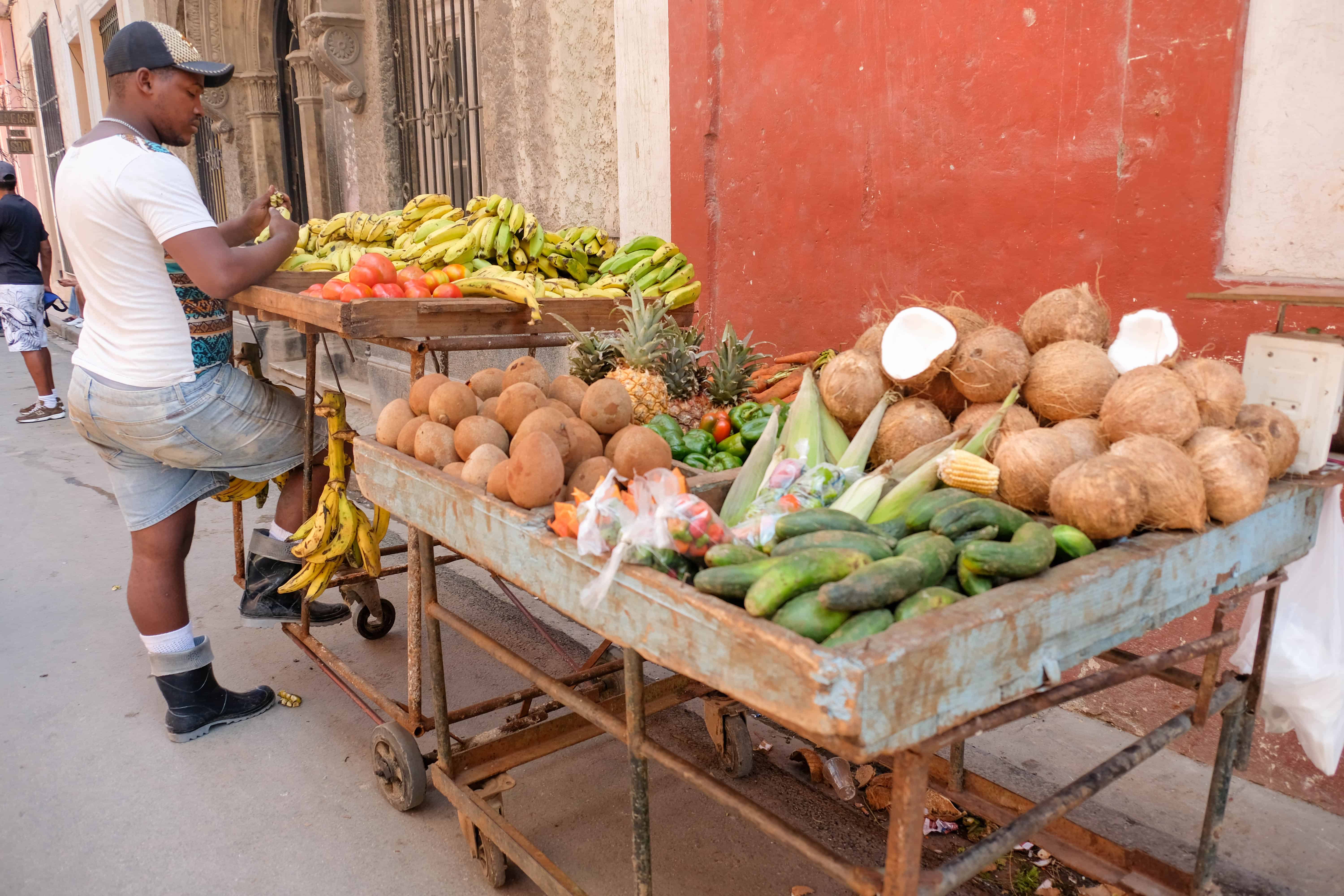
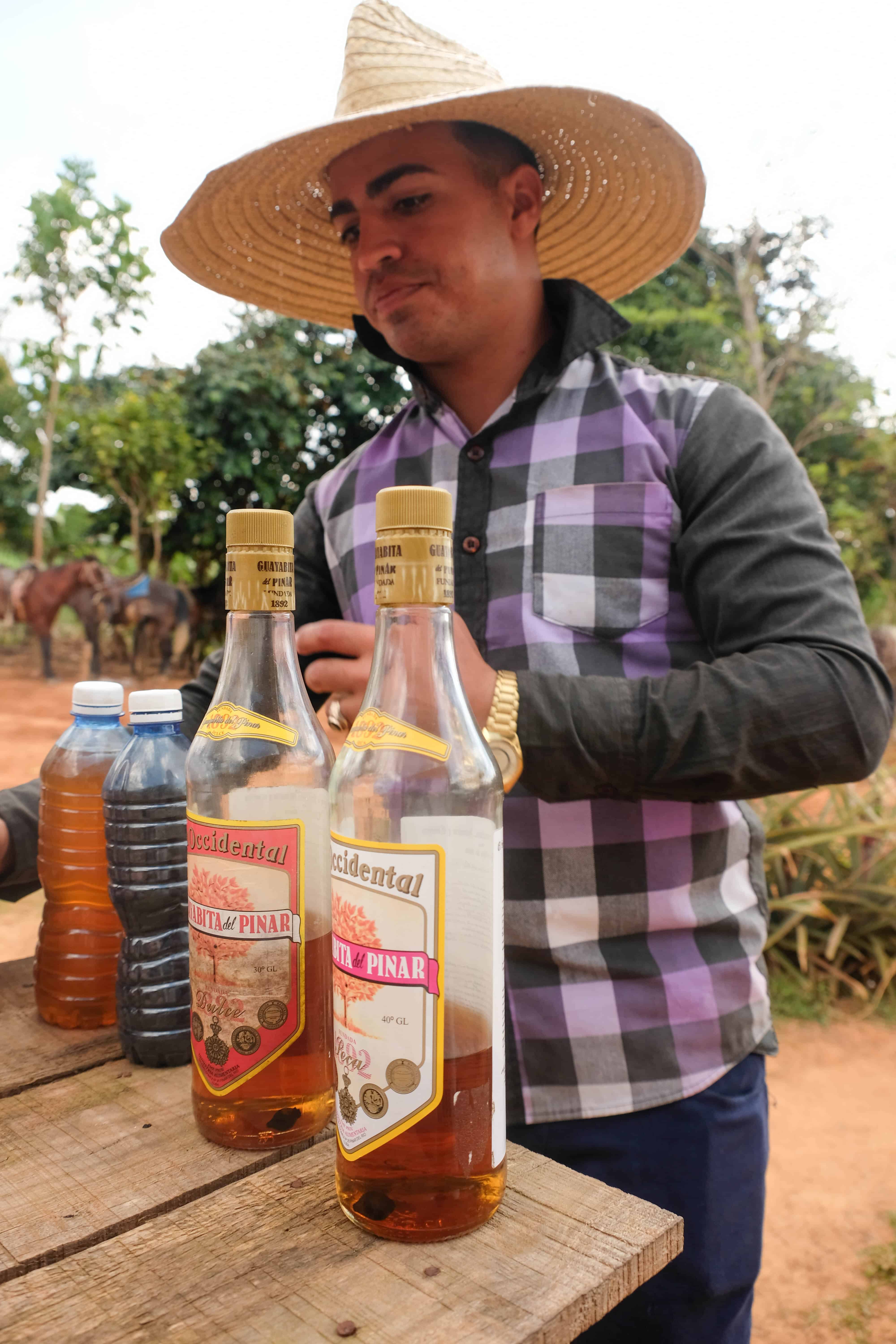
If you want to learn more about how to travel to Cuba as an American, read this post. And if you want to read all of the tips you’ll need to know before going, read this post.
xo,

Save this post:
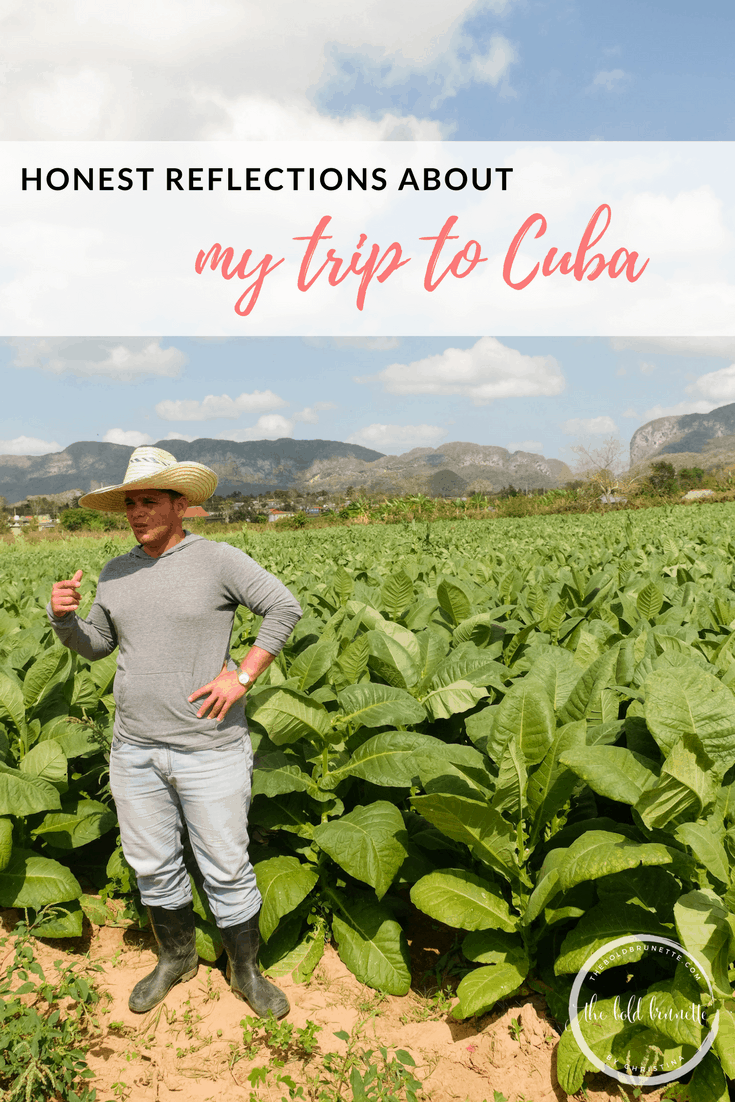
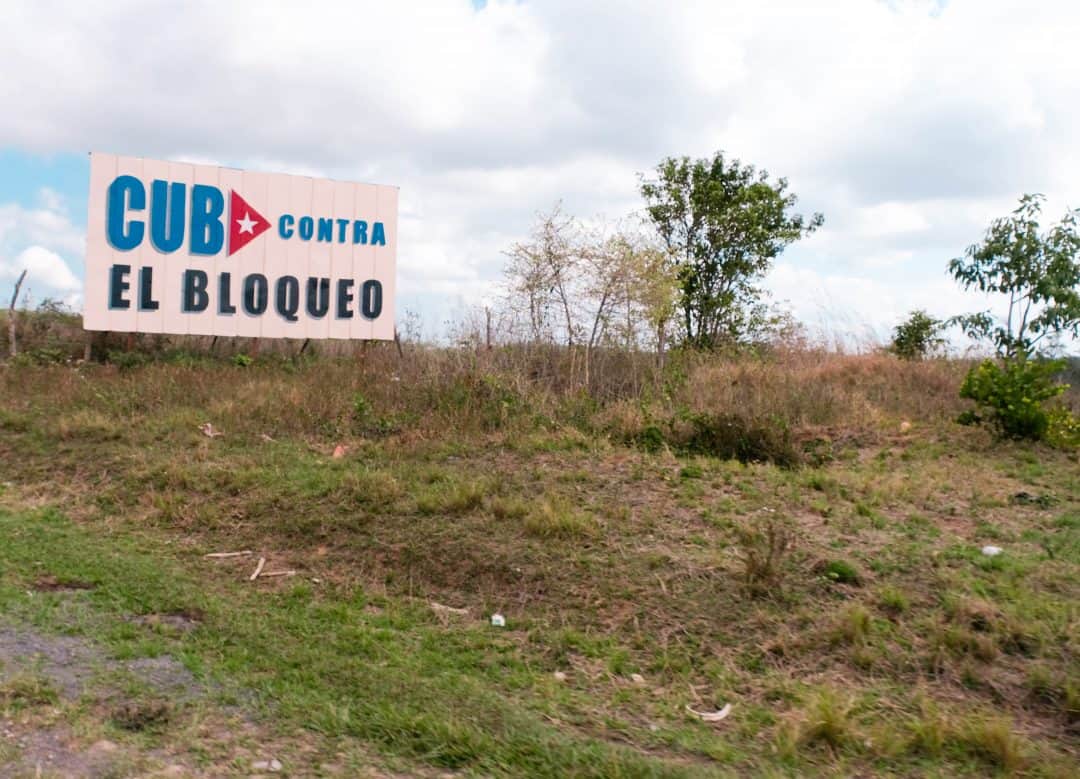
I love this kind of post! Those that tackles the nitty-gritty of the places. It’s real and it helps me get ready for when I am traveling there.
Definitely, I want to go to Cuba someday. And this really helps.
I hope you’ll have one for India someday, or do you have already?
You definitely need to make it Cuba one day – I would recommend sooner rather than later 😉 I have never been to India, but I would really love to later this year. Thanks for reading, Lo! xo
This post was literally one of the best-written articles I’ve read in a LONG time. It’s true, as bloggers we post the prettier side of travel and tourism but it’s so important to relay the things that people don’t often speak of. I loved your narrative voice throughout the entire thing (yup, I read every word) and the raw emotions you experienced are so well-portrayed. After reading the reflections from your trip, it sparked something in me to want to visit even more than I already do. Glad to have left with more insight and tips on what to do in preparation for when I go. Thanks for sharing!
You are too sweet, Shem, thank you!! I’m so glad you liked the article.
Such a great article on the different side of Cuba. It’s not always rainbows, lollipops and cigars.
It definitely is not! Thanks for reading, Jean 🙂
I think it’s awesome that you stated all these things which casual travellers might never have discovered before making that trip! Wow, just wow. Can’t imagine the challenges that locals have to deal with for being Cuban. Social media would never have portrayed that accurately in any way at all.
I couldn’t agree more! It’s so important that people visiting Cuba are informed before going. Thanks for reading xo
I absolutely loved your post! I’m going in 2 weeks so was eager to read. Loved every word! Thanks for your honesty.
Ah Megan, you are going to have such a wonderful time!! If you have any questions, feel free to email me. Enjoy xo
Very toughtful article and i appreciate to read about this side of cuba. It is not often in travelblogs we get to read about the daily lives of people in a country which indeed is all the more relevant in Cuba.
Yes, this is so real, thank you. I haven’t been to Cuba yet, but I already tire of seeing all of the photos of the same colorful houses and vintage cars. I knew it couldn’t be representative of the whole country, and I cringe whenever I think about how people want it to remain as it is so the “charm” isn’t lost.
This is a great write up, and hats off to you for encouraging people to think a little before they visit.
It´s always very refreshing to read about someone´s true and real experience, thanks for sharing it! I´ve been to Cuba in 2003 and have driven around in a rented car around the island – back then, it was one great adventure, but I am with you on this one, one should read about their history before going. The food situation was awful back then, we were hungry often as there was no food in the restaurants sometimes (Havana was an exception).
This is a great article for someone like me. I’m desperate to go because it just always looks so damn gorgeous in photos. I always try and take a good walk away from the main sites of places to the residential areas to try and get a better feel of the place. Thank you for sucj a gritty post! There definitely needs to be more information about the realities of countries to help us travel responsibly.
I loved your honesty in this post. It is definitely something that is very hard for us bloggers to write. We wanna show our audience the perfect side of traveling to a particular place without highlighting the not so pretty parts. It takes a brave person to tell all! This is the same dilemma I have been going through since my visit to Turkey. I want people to visit the country at the same time I don’t want to scare them of some of it’s political instability. But your post has encouraged me to put it out there; the good, the bad and the ugly. At the same time tell my audience steps to take for precaution.
I genuinely enjoyed and learnt so much from this post. I really respect the way in which you wrote this post and approached the topic with care and education. Definitely want to share this with my network!
Wow, I love this! As travelers, we have to be conscious of the cultures that we travel to. What is traveling if we don’t learn these sorts of things? I love your tips on how to be a responsible traveler in Cuba.
This is a fantastic post, you’ve really highlighted the issues and how we can travel responsibily. I completely agree that it will take a while for Cuba and the life of ordinary Cubans to change for the better, that was certainly the impression the locals I spoke to gave. But Cuba is still a great place to visit and the people are lovely and worth talking to – within what they are allowed to do of course.
Learning some of the local phrases always brings a smile – such as vamo echando asere! (Let’s go buddy!)
I have a few questions. Firstly, thank you for being more transparent and reflective than the rest. Honestly, what was your MAIN REASON for visiting Cuba? You don’t state it in the article at all. I am curious if it was all the hype and like you say, the social media instagram craze where posing with classic cars equates trip of a lifetime?
Also, what passport do you hold because people are definitely going in droves now including those with a USA passport and I don’t want to know how to get around the restrictions, but I want to highlight that NOT EVERYONE SHOULD GO to Cuba. It’s one thing to tell everyone to go and see and explore and get to know the people. It’s another thing to recognize that Cuba is not some amusement park for tourists, and many don’t see this. They think it’s their playground and it’s devastating that they arrive in complete ignorance No matter how much money they “spend” there. My ex BF was cuban. We talked long and hard several times about why to go or not go, and since he left his home at 16 he hadn’t been back. He’s now nearly 40. It’s complex. It’s not just cars and colors so thank you for at least getting some discussion going.
I loved this article. Cuba has been on my bucket list since forever, and I completely agree with you that bloggers/influencers tend to always focus on the beauty, on the happiness, on the good things… Such a great read!
Hey great post. I went to Cuba in 2009 and you are so right about them not liking locals to talk with tourists. I was quite lucky in that being black I looked Cuban so often I had really in depth convos with people (we even went to dinner with some guys) and so they could tell us alot about real life in Cuba (not the Insta friendly version) without fear of police getting involved. Speaking with the locals was eye opening and lovely as they are super super helpful. We also walked off the beaten track where you don’t see the colourful houses. Glad someone is sharing a post. If you would like more info happy to share my experiences of what people said to me.
THIS! I backpacked through Cuba in January and I’m still processing my trip. I have a hard time talking about it because of all of the things I experienced, both good and bad, that people just won’t understand. When you come back from a trip, and everyone asks you how it was, they want to hear the good things, not about the struggles. And to be honest, it’s hard to talk about anyway because those are such deeply personal experiences to put into words. But you really hit the nail on the head and I’m so thrilled to have read this post. Thank you for bringing awareness.
Thank you so much for writing this post! So many travel bloggers just highlight the good of a place and ignore the bad, but responsible travel is so, so important. The whole reason I travel is to be more aware of the world around me and you can’t do that when you’re only focusing on the good!
I haven´t been to Cuba, but this post reminds me of my feelings about Colombia (where I lived) in a way. People seem to only speak about the good (amazing locals, beautiful nature, beaches, food, salsa, music etc) but at the same time dislike visiting places like Bogota where you can see the daily reality of many people. Colombian people don´t live the Caribbean fairytale life, they work their ass off to make ends meet and yes, they laugh and dance because that´s their culture, but it doesn´t mean there are no problems in their life. Thank you for sharing your thoughts, I learned a lot reading this.
Christina,
All destinations have the bad and the good. Some people opt to tell the good, others like to show both sides. I completely love this post because it shows the reality.
Before visiting to Fiji, all I thought was how amazing would be to live in a place where it was all about turquoise waters and palm-fringed beaches, but it is not. The mainland is VERY different from those picture-perfect images from Google!
Thank you for sharing your honest opinion 🙂
Telma @ Blank Canvas Voyage
This post is incredible!!!! I love your honestly and it has changed my opinion on it being a swanky beach destination an off shoot of Miami. I would like to visit but maybe not yet
Thank you for your honesty and writing such an informative post. I know it can be hard to write the other side of things when you still want to encourage people to see it for themselves. Great post.
It’s kind of strange that you didn’t find anyone talking about the unfortunate parts of Cuba, bc all the blogs Ive read definitely mentioned all of those things. It’s kind of hard to avoid. So I wouldn’t say NO ONE is talking about it, but people should definitely discuss it.
I run a casa particular there and the ignorance of tourists are mind blowing. They’re incredibly cheap not knowing how hard it was for their host to have fed them lobster or fish, as you said. Or want to negotiate over the smallest things when really a family can’t provide for themselves let alone go down on price for a tourist who can return home and make boat loads more money. It really bothers me!
Also Cubans can’t socialize with tourists in public for a long period of time to avoid prostitution. It’s to keep the jineteros away from tourists. The government does it to protect you, not so much to punish their people.
To travel to Cuba is to dive into the heart of a story, both magnificent and terrible, and to give yourself the opportunity to form an opinion, certainly more nuanced and complex than the common clichés. At the end of my journey in Cuba; various feelings come over me… This country does not leave you unchanged ! Thinking of all the colours of the island, I still wonder if “misery would be less painful under the sun”…
I went to Cuba in 2004 (during my study abroad semester) and again in 2014, and I’ve wanted changes in U.S. policy to take place for so long. But like you expressed, it’s complicated. So I feel myself having an aversion to the *trend* of going to Cuba. I don’t want to come off as holier-than-thou, but I definitely want to encourage people to dig deeper than the surface.
I remember when I went in 2004, I had also traveled to Nicaragua and was living in Costa Rica for the semester, so it was interesting to contrast those other countries to what I experienced in Cuba. Cuba didn’t have the kind of extreme poverty that Nicaragua had, or that I had witnessed in the Dominican Republic previously. They don’t have people living and working in garbage dumps like in Guatemala City. Everyone has education and healthcare in Cuba. But then, for pretty much everyone there, simple things like toilet paper or shampoo or construction materials were extremely hard to find. And most people have a side hustle (they call it “La Lucha”–the struggle or the fight) in order to get by. And people have housing, but there are often a lot of people living under one roof. And I’ve had a couple of experiences like yours being in the car with a Cuban.
So it’s complicated. I’ve written a little about that in a narrative on my blog, and I’m currently writing an article about ethical concerns of traveling there (and some tips for traveling responsibly). I really enjoyed reading your reflections and definitely agree with learning about the history and current events before traveling (something I try to do no matter where I travel). A couple of books I’d recommend are Cuba: Neither Heaven Nor Hell by Maria Lopez Vigil and Cuba: What Everyone Needs to Know (2nd edition) by Julia E. Sweig.
The first book is older so it won’t really reflect the current situation, but I read portions in preparation for my 2004 trip, and it was interesting to balance out my pre-conceived notions of Cuba. Interestingly, back then it was a narrative of “Everything about Cuba is bad, and their government is evil.” And now it’s flipped in some ways with people presenting only the good side. Either way, it’s interesting to explore the gray area.
The second book is really great for learning the history, and it’s broken up into small topical chunks (like what the role of women in the Revolution was or how the arts did or didn’t get repressed during certain times), but within time periods. So it’s a lot easier to read than just a history book, and you could even just read certain topics that interest you without diving into the whole thing.
Anyway, thanks for sharing your thoughts! Really enjoyed reading it. 🙂
While I appreciate the sentiment behind this post, I’m afraid there is some misinformation and overall generalizations that one wouldn’t notice unless you’ve spent significant time in Cuba- with Cuban people. For example, you recommend getting involved, but voluntourism is not encouraged in Cuba. Despite the poverty, Cuba is much better off than many of its neighbors and the gov, quite frankly, doesn’t need your help. Another thing an observant traveler will notice about Cuba is that the people with access to tourist dollars- cab drivers, waiters, airBnB owners- are all white Cubans with relatives abroad sending back remittances. Due to the US embargo, AfroCubans have limited socioeconomic mobility. Thus, if you really want to make a positive impact, supporting AfroCuban businesses directly supports marginalized communities. Giving things to the waiters and casa particular owners who are already better off because they have family abroad to help them bypass the worst parts of the embargo only further entrenches Cuba’s problems. and regarding the cab driver you mentioned, only certain cabs are certified to drive tourists based on a government criteria their cars must meet (guess who has enough money from remittances to trick out their cabs for tourists…)
This was one of the best, if not THE best, post I’ve ever read! I had absolutely no idea about this side of Cuba, and I’m so happy you decided to share it. I’ve seen the pictures and I’ve read the raving posts, and I’ve even seen the episode when the Kardashians go to Cuba. Of course all those made me want to visit, but I’m happier knowing the full picture of the situation. Thanks so much for sharing your experience, and these tips! And I love your writing style…I was captivated all the way through!
Thanks for writing such an honest post about Cuba! Really interesting to read about the taxi driver situation, it’s crazy that highly skilled workers are forced to drive cabs to earn a decent living. Thanks for listing the volunteer link too, I think I’d love to do something like that when visiting Cuba…it doesn’t have that beach resort vibe, I feel like a trip there needs to do as you’ve shown, explore the culture and alternate side of Cuba.
Very good post, seriously.
“government imposes restrictions on how the Cuban people can interact with tourists.” this really shocked me. I don’t want to believe that this is true and yet I totally believe you…
It is SO SO SO important to not only show the beautiful part but also the ugly parts. We, as travelers, have money and can afford to travel and stay in the nice parts but the biggest part of the locals don’t live there.
Here in Mexico, my heart gets broken almost every day by seeing people and seeing how terrible the government is. Yet I see posts about how amazing Cancun and Tulum are. All the time! And nobody talks about the bad side. Nobody. It’s a shame.
We shouldn’t hide poverty and problems. We should show them to the world because everyone should know about this.
Thank you, thank you… finally someone writes an honest, balanced article about their trip to Cuba! My Facebook newsfeed is filled with “my Cuba trip was wonderful” and “loved Cuba” and there are an abundance of blog posts and articles about Cuba being the “must see” destination. While there are certainly wonderful aspects to visiting Cuba, there are the realities that no one addresses. Ask people who have immigrated from Cuba to the U.S. with relatives still in Cuba who would love to get out. So glad that you’ve given us a balanced view with one less rose-colored glasses report. Kudos!
Thank you for sharing the realness of what to expect when going to Cuba. I have heard it is definitely not what you see in pictures and I appreciate your honesty.
Hi Christina! I can’t begin to tell you how refreshing it is to read a post like this about Cuba. As someone who grew up in a country that has been heavily influenced by the Cuban government, all I can say is that I am very grateful that you gave a voice to the reality of Cuba. Everyone talks about how pretty it is because it looks frozen in time, but they don’t seem to realize that it means that the country hasn’t been able to evolve and that people face many restrictions in their daily lives. Thank you for speaking freely, a right I wish someday people in Cuba gain back.
Excited that you wrote this and have shared it with my many Cuban friends. After 13 years in Miami I have lived and worked with tons of Cubans and very in tune to their issues. This definitely is the kind of thing travel bloggers should be discussing! I’m working on a similar article concerning my discomfort in visiting Myanmar. Well done!
Excellent read, a friend of mine is traveling soon and I appreciate your research.
Thank you for your honesty and facts about Cuba. I wast there in February and loved the country but did my homework and read about the history and the current situation. I agree wholeheartedly that we need to support private business there and continue to travel to Cuba and shed light on the situation. Gracias!
Thanks for sharing this lovely! I meant to comment ages ago when I first read it but life got in the way ;). As other comments have said, I am so so glad you have written a balanced review of Cuba – this kind of integrity within the blogging community can be so hard to come by nowadays. Keep on with the great content!!
Really interesting post! I’ve thought about visiting Cuba and it is really refreshing to read such an honest post — I, like many others, have seen so much of Cuba on social media but was unaware of some of the issues you brought up. I would still love to visit and definitely plan to be as informed as possible.
Thanx for sharing the post. The photos and information about Cuba is excellently put down in this article.
Great article. I came across it as I was preparing to write a similar article on my recent trip to Cuba. This trip was like no other. I couldn’t agree with you more. I too wanted to give a true account while still encouraging people to visit.
Erm, some of us aren’t saying those things (heartbreaking, etc). Because they’re not true for us. You shared some great info. And tips for those that know zero about Cuba, but comments like “I was most disturbed and surprised to learn that the government imposes restrictions on how the Cuban people can interact with tourists.“ belie that you felt this way because little no research was done about the country…that’s pretty much Cuba 101. Anyway, glad ppl are getting value out of the info. I definitely encourage everyone to read about the history, culture, and political state of countries they visit, before traveling there.
WOW I So enjoyed your truthful report on Cuba.. just finished watching Cubra Lbre on Netflix – starting to get a grasp on Cuba’s past and present.. Thank you..
Thank you for posting. I love giving gifts wjen i visit countries and this is definitely a big help, as sometimes i have reservations of the local culture allpws it ( in china for example giving tips os not as popular). It is also helpful to know how to reqct and not flahnt too much wholst being there , being sensitive to theor socio-economic situation is essential. Big thanks, i know this has been written a while back but still helps for my upcoming planned visit. Awesome job, you. 🙂
Hello Christine: I am a Cuban who has lived in Spain for half of his life now and I was lucky enough to come up with your blog on a rainy afternoon. You seem to have learned a lot about my country and I appreciate your encouragement to people so that they decide to travel to Cuba and benefit from the good things the country has to offer… Keep up the good work you are doing and I am happy you were able to change your life for the better and start helping others as well. A big hug and I wish you a long and prosperous life.
THanks for posting this. As a venezuelan, living the same thing cubans are, it breaks my heart and it makes me angry that people don’t really know what happens in Cuba when they go there and spend their money, financing the opressing government.
The dicatorship created a bubble of beauty in Havana for tourists to experience a fake paradise-like time in Cuba, but it couldn’t be mor far from the reality in the rest of the country. It used to be worse ( blackouts, like it’s happening now in Venezuela), but they have managed to make things better since they started rgetting our oil.
This article is just the tip of the ice, Child prostitution is just one more things to add. It’s a fucked up place, and anyone that comes here to say it’s not true probably works for the goverment ( most cubans don’t have internet access), or they just think they know something because they spent a month in bubble Habana
Thank you for sharing your impressions. Yes, I heard a lot about Cuba differently, but I was very impressed that the Cubans did not have the opportunity to acquire the most necessary things in everyday life. Probably, I will not plan a trip to Cuba yet ….
Omg your reflections are bang on! We have just left cuba having spent 3 days there and were so glad to have read your article we felt devastated to discover the country as it is although stunning there is that underlying suppression. Thank goodness we tipped well and spent time (although momentary) with some lovely local people bought them lunch after they helped us find an atm that could produce some cash we have previously walked around for 4 hours trying numerous machines with no luck. I felt very sad on leaving them behind as we trot back to our beautiful fair land. Cheers Serena and Simon
Hello Serena,
as I am travelling to Cuba in March, I was wondering, what kind of bank Card you used? I have a mastercard from Europe and was hoping, that I wouldn’t run into the same Problems as you did with the ATMs… any other recommendation on how to get Money in Cuba? Bring Euros or Dollars and change them there? Or just search for an ATM? Thank you! Greetings, neomi
This “holiday” to Cuba sounds like more work and sadness than it’s worth. Thanks for writing about the misery of the people. I could never travel to a country where people can’t be free. I wouldn’t want to make them feel worse because of my freedom.
Hey, guys. I heard that
I’ll add to be aware the streets in Cuba are in very bad shape. Let the locals do the driving, don’t drive at night and be alert driving thru the country side as cattle and other domestic animals can be on the road.
Thanks